-
Healthy Dental Habits
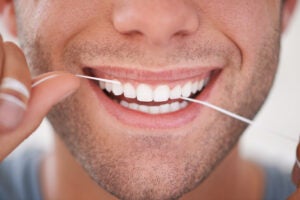
Your smile says it all! But what exactly does it say? Dental hygiene is not just important for a great smile, it also contributes to your body’s overall health. Caring for your teeth can decrease risks of gum disease, heart disease, dementia, respiratory problems, and even cancer. Risk prevention is easier than you think if you follow these simple habits to develop healthy hygiene.
Brush Your Teeth 2-3 Times Daily
Using the right toothbrush and fluoride toothpaste will prevent food from getting stuck between your teeth as well as plaque build-up, which can lead to bad breath, cavities and gum disease. Brushing morning and night are common habits, but brushing after each meal may also help with build-up, preventing gum disease and bad breath. It is recommended to brush in a circular motion for 2-3 minutes and cover each section of your mouth so that each tooth has been properly noticed.
In addition to brushing, choosing the right toothbrush is also important. Whether you are choosing an electronic toothbrush or a regular tooth brush, make sure that you are replacing it (or the head, with an electronic toothbrush) every 3 months to reduce the amount of bacteria growing and potentially causing harm.
Flossing
Be honest! It is easy to answer your dentist or hygienist with a false and emphatic, “Yes!” when asked if you’ve been flossing. However, you know the truth and your body does, too. It is a beneficial habit to floss your teeth daily. This routine cleaning provides even more care for removing food from between your teeth and prohibiting harmful growth of plaque or allowing cavities to form. Bleeding gums when you floss can indicate gingivitis or even a lack of healthy gums but this can improve over time, so stick with it! If flossing is something that your sensitive teeth have difficulty tolerating, try a water pick instead.
Whether you are choosing floss or a water pick, make sure that you are working to dedicate time to developing healthy dental hygiene habits so that your next dental visit can be an honest one!
What More Should You Do?
Other suggestions for healthy oral hygiene include brushing your tongue and even using an antibacterial mouth wash. Tongue scrapers can be purchased and can help with removing bacteria from your tongue and improving your breath. Antibacterial mouth wash can be the final touch to your daily routines and can help remove any bacteria that may have been able to hide from your toothbrush or floss.
Now your daily oral hygiene habits are off to a sparkly, fresh start. What other habits should you let go of?
There are some bad habits that are actually more than just indulgences. What you put into your mouth and body impacts your whole body’s health. So, take care of you and your mouth!
- Limit coffee, tea and coke and drink with a straw to prevent the harmful acids from settling onto your teeth.
- Say NO to tobacco! No smoking or chewing tobacco!
- Eat a nutritious diet of fruits, vegetables, fish, and chicken to encourage healthy teeth but also a healthy body overall!
- Limit sugary foods! The harmful bacteria in your mouth gets fuel from sugary foods and drinks. By limiting what you eat you are promoting a healthier mouth.
Now that you are ready to focus on a more complete oral hygiene regiment, make sure that you also schedule dental appointments regularly to assist with preventative care and a positive care plan that will impact your whole body! At Park 56 Dental, we are here to serve you! Give us a call at (646) 679-3989.
-
8 Bad Habits That Ruin Your Dental Health
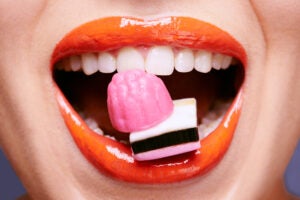
Are you looking for ways to take better care of your smile? It’s easy to focus on things you should do, like brush morning and night, floss once a day, and visit your dentist for a professional cleaning every six months. But what about the things you shouldn’t do? Here are eight bad dental health habits that you need to break right now.
- Chewing on ice or hard candy: Munching on the ice cubes at the bottom of your drink may seem harmless, but this habit can damage your teeth if you bite down wrong. Chill your beverage before serving it to avoid needing ice, or drink from a straw to reduce the temptation to chew.
- Biting your nails or chewing on pens: These bad habits introduce harmful germs into your mouth, damage your teeth, and lead to jaw dysfunction. If you want to stop biting your nails, try wearing bitter-tasting nail polish.
- Using your teeth as tools: Never use your teeth to open packages, undo knots, tear tape, or open bottles. Instead, find the right tool for the job, such as scissors or a bottle opener.
- Constantly snacking or sipping on sugary drinks: Eating nonstop keeps your teeth in constant contact with food particles, increasing the risk of cavities. This habit is even more problematic if your snacks or drinks have high sugar content. The solution is to eat balanced meals so you aren’t tempted to snack all day. Then, reach for water instead of juice, soda, or sports drinks.
- Brushing too hard: Aggressive brushing can wear down tooth enamel and irritate your gums. To avoid these problems, choose a soft-bristled toothbrush and focus on gently massaging your teeth, not scrubbing them raw.
- Playing contact sports without a mouthguard: It only takes one hit to the mouth to chip, break, or even lose a tooth. You might also bite your cheek or tongue. To protect your teeth and soft tissues, ask your dentist about creating a custom mouthguard.
- Grinding your teeth: Stress can cause nighttime tooth grinding, or bruxism, a habit you have little control over. If you think you grind your teeth in your sleep, the best solution is to wear a special nighttime mouthguard your dentist makes just for you.
- Smoking or chewing tobacco: Using tobacco products of any kind stains your teeth, causes gum disease, and increases the risk of oral cancer. Save your dental health—talk to your dentist for tips to quit smoking
At Park 56 Dental, we know it can be hard to break bad oral health habits. But just a few small changes can go a long way toward preserving your smile! For more tips or to schedule your next dentist visit, feel free to get in touch. We’ve been voted the best dentist in New York, with over 20 years of experience serving the 10022 zip code area. Call us at (212) 826-2322 or contact us online to speak with our NYC dentist today.
-
Why it’s Important to Replace a Lost Tooth
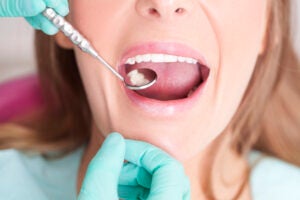
Many people assume that a missing tooth only has cosmetic consequences. But while having a gap in your smile is enough to make anyone self-conscious, there are also numerous health-related reasons not to ignore a missing tooth. Whether you opt for a bridge, removable partial dentures, or a dental implant, here’s a look at why it’s important to replace a lost tooth.
- Your teeth may shift and loosen: Every tooth helps maintain the stability of the one next to it. If you lose a permanent tooth, the surrounding teeth may begin shifting to fill the gap, undoing years of orthodontic work.
- Chewing may be more difficult: The sensitive gum tissue where your tooth is missing can make it painful to chew in that part of your mouth. Then, if your teeth drift out of place, your bite may suffer, making chewing even more uncomfortable. Over time, you may find it cumbersome to eat solid, healthy food like fruits and vegetables, which can lead to poor nutrition.
- You could develop TMJ disorder: To avoid discomfort, you may start chewing food on only one side of your mouth. However, this can strain your jaw muscles and lead to temporomandibular joint (TMJ) disorder, resulting in jaw pain, chronic headaches, and other symptoms. Lopsided chewing can also wear down your teeth unevenly and affect their appearance.
- You may be more prone to cavities and gum disease. A shifting smile and altered bite can make your teeth harder to clean. This means you’re more vulnerable to tooth decay and gum disease, both of which may lead to further tooth loss.
- Your jaw bone could deteriorate: A healthy jaw is only possible if you have healthy teeth to stimulate the production of new cells. If you lose one or more teeth, this stimulation disappears, which can lead to bone loss.
- Your appearance could change: When your opposing teeth have nothing to make contact with, your muscles and bone structure may begin to change. This problem is most apparent if you lose several teeth, which can lead to sunken cheeks and an aged appearance.
- Your self-esteem could suffer: Losing baby teeth may have been fun as a kid, but having a gap in your smile as an adult can drain your confidence level. First, you become concerned with your appearance and cover your mouth when you smile. Then, you may avoid talking too much if you develop a speech issue. Depression and anxiety can set in as a result.
If you recently lost a tooth in a traumatic incident or had a decayed tooth extracted, visit Park 56 Dental to explore your tooth-restoration options. We recommend dental implants to many of our patients because they provide a hassle-free, long-lasting way to replace a lost tooth. Even if you didn’t qualify for an implant in the past, you may now be eligible. To find out what makes us the best dentist in New York, please call us at (212) 826-2322 and schedule a consultation.
-
Signs it’s Time to Switch to a New Dentist
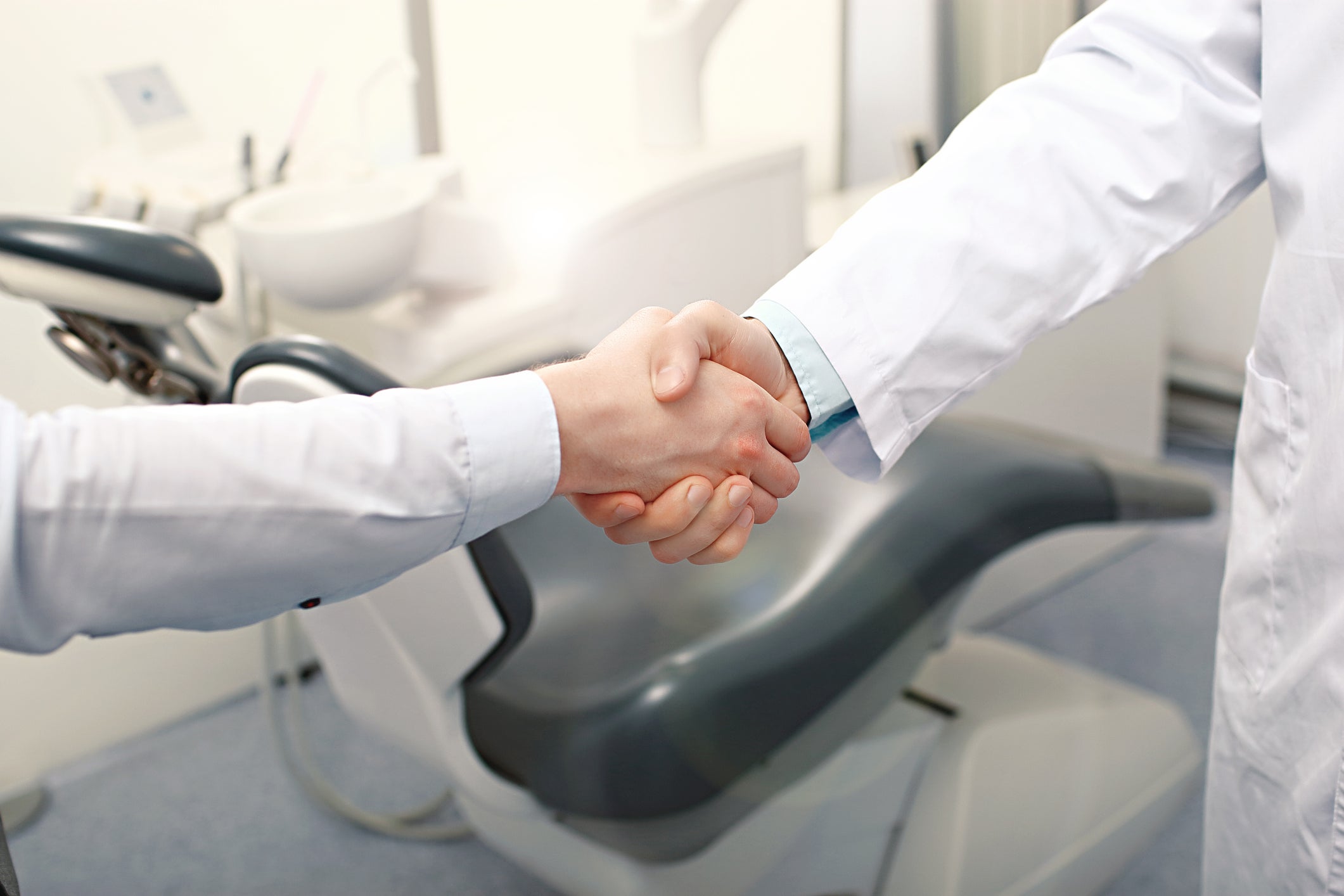
Change can be difficult, but sometimes it’s necessary. Is it time for you to change dentists? It can be a hard decision to make, especially if you’ve been with your dentist for a long time. Still, there are some clear signs that it’s time to move on.
- Maybe your needs have outgrown your dentist. If you’ve been going to a pediatric dentist and you’re now an adult, it’s definitely time for you to move along. If you have children, it’s smart to choose a dentist who offers both pediatric and adult dentistry.
- It could be that someone has moved. Maybe it’s you, or maybe it’s your dentist. Whether your favorite dentist has moved away from the practice, or you’ve relocated to a new town, a change in location can warrant a change of dentist. It’s important that the dentist you trust is in a location that’s convenient for you.
- Sometimes, your dentist won’t take your insurance. They may have changed their policies, or your may have switched providers. If your dental office is no longer in-network for your insurance plan, it’s time to switch.
- You might have noticed some red flags. If your dentist pressures you to use their practice for services for which you should consult a specialist, if the environment has changed to something that doesn’t feel hygienic or safe, or if you feel uncomfortable with the dentist or staff, move on. If you’re constantly having to dispute billing or the dentist discourages you from seeking a second opinion, those are also reasons to switch.
- If you’re not happy, that’s reason enough. If the dental practice you’re using is no longer meeting your needs, you have the right to find one that will. Whether it’s a lack of services provided, poor customer service, or another reason, look for a dentist where you’ll be happy.
Once you’ve decided to switch, what’s the next step? Do some research and find a practice that will be the right fit for you and your family. Look at the services offered, check out reviews, and research the dentist’s background and certifications. Beyond that, read up on the practice to determine their values, philosophy, and level of technology. Once you’ve done this, visit the office to see if it lives up to your expectations and meets your needs.
At Park 56 Dental Group, we are committed to meeting each patient’s specific needs. We’ve been providing top-quality care and treating each patient individually since 1997, making it comfortable and easy to visit the dentist. We accept many different insurance plans and welcome you to visit us so that you can make an educated decision about your dental care.
If you’re looking for the perfect dentist, choose the practice that was voted best dentist in NYC! At Park 56 Dental Group, we offer pediatric, prosthodontics, endodontics, oral surgery, Invisalign®, emergency, and sedation dentistry, all at the highest level of treatment. We serve the Midtown, Central Park, Upper East Side, Park Avenue, and all surrounding Manhattan and New York areas, with a patient-centered practice that has hours to fit your schedule. Schedule your complimentary consultation today by contacting us online or calling us at (212) 826-2322.
-
Why You Have White Spots on Your Teeth

When you smile at yourself in the mirror, you want pearly white teeth to smile back. If you notice white spots on your teeth, you may wonder if it’s a temporary cosmetic problem or an indicator of a more serious health issue. Explore the reasons why you may have white spots on your teeth and how a dentist can help you prevent or treat the problem.
What Causes White Spots on Teeth?
Several problems may cause white spots to form on your teeth. Some of the most common factors include:
- Too much fluoride: Ingesting too much fluoride leads to a condition called fluorosis. This harmless condition is usually seen in children whose teeth are still developing. To prevent this, give young children fluoride-free toothpaste and instruct older children not to swallow their toothpaste.
- Improperly formed enamel: A condition called hypoplasia causes poorly developed tooth enamel in children, resulting in white spots and an increased risk of tooth decay. Smoking during pregnancy is one reason this can happen.
- Certain medications: Amoxicillin and other medicines taken to treat infections can weaken tooth enamel enough to allow white spots to form. This most often affects children whose teeth are still developing.
- Loss of mineral content: In adults, an opaque, chalky white spot is often the first sign of a cavity. It indicates that the acidic plaque on your teeth has compromised the enamel, which is now starting to decay.
- Poor diet: Not consuming enough calcium and other minerals weakens your enamel. Then, eating too many sugary or acidic foods eats away at your weakened teeth, leading to white spots and eventually cavities. Try eating more fruits, vegetables, nuts, and low-fat dairy, while reducing your intake of candy, soda, juices, citrus fruits, and starches.
- Poor oral hygiene while wearing braces: It’s common for white spots to develop on your teeth while wearing braces. After all, dental hygiene is more difficult when your teeth are covered with brackets and wires, so thorough brushing and flossing are more important than ever. You may also want to consider Invisalign as a metal-free way to straighten your smile.
Treatment for White Spots on Teeth
When it comes to keeping your teeth healthy and beautiful, prevention is the best medicine. If white spots have already appeared on your teeth, a dentist may be able to remove them, depending on the cause and level of deterioration. The most effective treatments include:
- Enamel microabrasion
- Teeth whitening
- Dental veneers
- Topical fluoride
- Composite fillings
If you want help removing white spots from your teeth, Park 56 Dental is here for you. We offer cosmetic and restorative dentistry services to renew your confident smile. Our world-class care and passion for helping our patients have earned us the title of NYC’s best dentist! Find out for yourself what makes us different—call us at (212) 826-2322 or schedule an appointment online today. We have served the 10022 zip code area for over 20 years.
-
The Best and Worst Christmas Foods for Your Teeth

Have you decided what to serve at your upcoming Christmas party or holiday feast? If you’re trying to prepare a healthier menu, consider how different foods affect your oral health, not just your waistline. Here’s a look at which Christmas foods are on the nice list and which naughty foods you should avoid.
Christmas Foods on the Nice List
- Turkey and ham: As long as you choose lean cuts with minimal additives, protein is considered good for your teeth. Turkey, in particular, is packed with phosphorus for healthy teeth. Then, ham is high in potassium, which helps your teeth use calcium more effectively.
- Cheese: No holiday buffet is complete without a cheeseboard. The good news is cheese is packed with calcium and protein for healthy teeth. It also neutralizes any acidity in your mouth to reduce the risk of cavities.
- Nuts: Mixed nuts make a great holiday snack. Like cheese, they’re high in calcium and protein and low in sugar. Their crunchy texture is also a plus.
- Raw vegetables: Set out the veggie platter and enjoy every bite, knowing you’re eating one of the best Christmas foods for your teeth.
- Apples: All fresh fruit is good for you, but apples are especially beneficial for oral health. Finish your meal with a few apple slices to scrub your teeth and stimulate your gums.
Christmas Foods on the Naughty List
- Chocolate and other candy: Sweets are high in sugar, which becomes acid in your mouth. This means all candy is bad for your teeth, from hard candy canes and toffees to soft caramels and chocolates.
- Eggnog: While many consider eggnog a holiday staple, it’s chockfull of sugar. The thick consistency of this drink also encourages the sugar to stick to your teeth, creating acids that cause tooth decay.
- Dried fruit: Even though it contains the word “fruit,” you should beware of this holiday treat. Dried fruit is surprisingly high in sugar and stubbornly sticks to your teeth. Choose fresh fruit for a healthier mouth this Christmas.
- Popcorn: Popcorn hulls are a danger to your teeth, but any added caramel or chocolate drizzle only worsens the effect. Keep toothaches at bay by brushing and flossing after eating popcorn to remove any remaining debris.
- Sugar cookies: In addition to being sugary, cookies also contain starches that get stuck in your teeth and feed the bacteria in your mouth. If you get a craving for cookies, try chewing sugarless gum instead. Your teeth—and your waistline—will thank you.
Along with eating the best Christmas foods for your teeth, remember to continue your oral care routine this holiday season. This includes seeing the dentist regularly. If it’s been more than six months since your last visit, schedule an appointment with Park 56 Dental before the New Year. We’ve been voted the best dentist in New York, and with good reason. Contact us today at (212) 826-2322 to experience our spa-like dentist office for yourself.
-
Why You Should Take Advantage of Your Dental Insurance
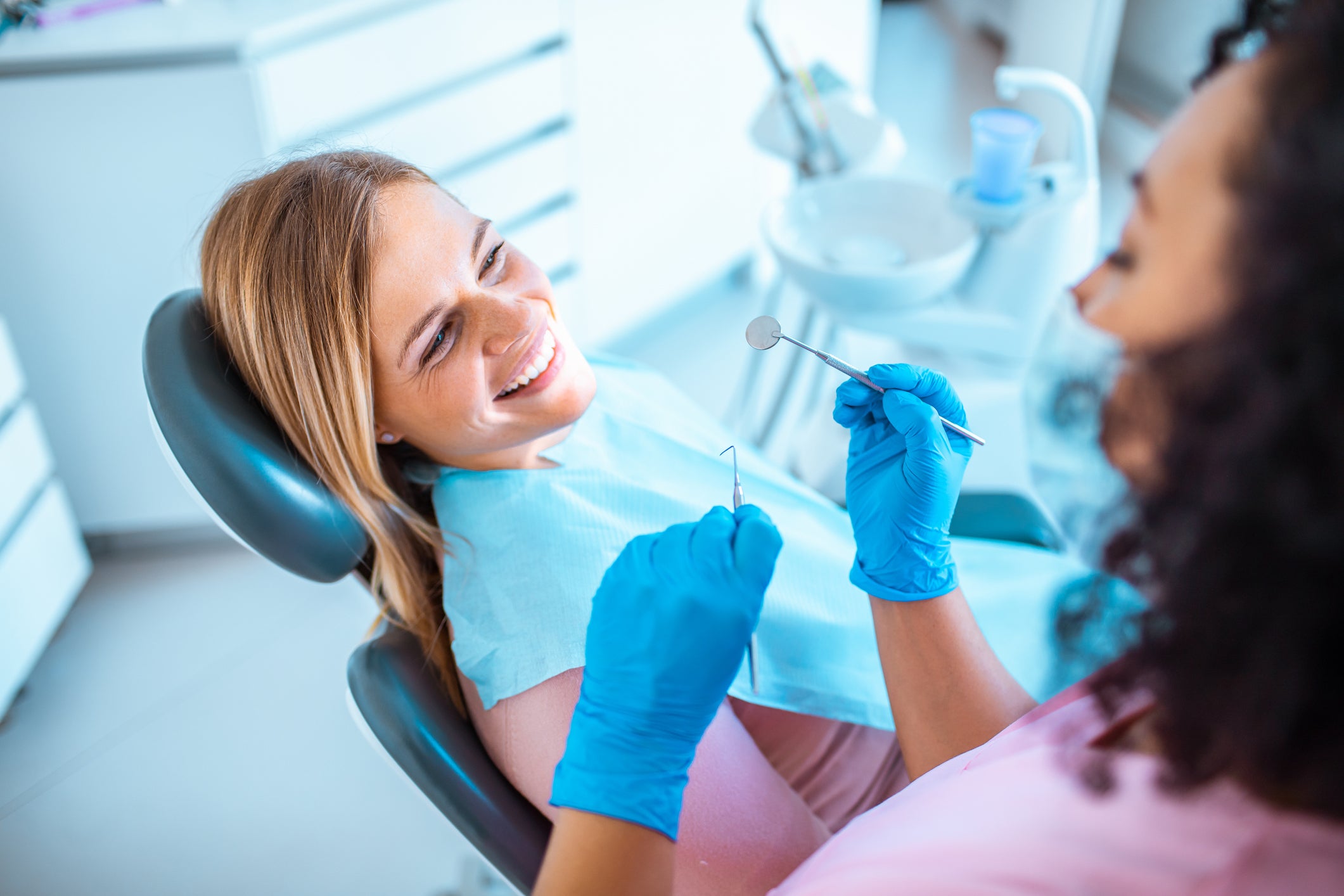
If you have dental insurance, your current plan will likely reset on January 1. Whether you pay for dental care through a benefits plan or use an FSA, don’t leave your hard-earned dental dollars on the table—schedule the dental services you need today!
Why Should You Use Your Dental Insurance?
- Coverage expires at the end of the year: Most dental plans cover two preventative visits per year and have an annual maximum. Coverage doesn’t roll over, so any unused benefits will go to waste.
- You’re already paying for it: Dental coverage through your employer deducts automatically from your paycheck. If you don’t visit the dentist, that money is simply wasted.
- Prevention is better than cure: Utilizing your dental insurance helps prevent oral health problems before they start. Even if you don’t need restorative or cosmetic services, you should still have your teeth cleaned and examined twice a year. Your plan should cover most or all of the cost, making it affordable to maintain a healthy smile.
How to Make the Most of Your Dental Benefits
- If your mouth is already in good shape, keep visiting the dentist every six months to keep it that way.
- If it’s been a while since your last appointment, meet with a dentist to determine your dental needs and what treatments are available. Getting everything done before the end of the year helps you make the most of your annual maximum.
- If you have periodontal disease or another chronic oral health problem, your dental benefits should make ongoing treatment more affordable.
How to Make the Most of Your Flexible Spending Account
A Flexible Spending Account (FSA) is a pre-tax way to fund qualifying medical expenses. You set it up through your employer and decide how much you want to contribute to the account each month. In general, FSA funds expire at the end of the year, so you’ll lose any money you haven’t spent once January 1 rolls around. Here’s how to make sure you use these funds to the fullest:
- Plan carefully during open enrollment to avoid overfunding your FSA.
- Talk to your dentist in the summer or fall about any procedures you might need soon. You may be able to use your FSA to pay any associated co-pays or co-insurance.
- Schedule any services you need before the end of the year to ensure your FSA dollars are used in time.
- Remember that FSAs typically cannot fund cosmetic procedures, such as teeth whitening, veneers, or cosmetic braces.
Park 56 Dental accepts insurance plans from Delta Premier, Delta PPO, MetLife, Guardian, Aetna, and Cigna. We also work with CareCredit and Chase Healthcare Advance for patients who don’t have insurance coverage. If you have any other questions regarding finances and dental care, feel free to ask. Then, contact us at (212) 826-2322 to schedule an appointment at our spa-like dentist office. We have served the 10022 zip code area of New York since 1997.
-
What to Expect During Your First Visit to Park 56 Dental

At Park 56 Dental, we are committed to providing our patients with safe, gentle, high-quality dental care. We understand that you or your child may feel apprehensive about your first visit to our office. That’s why we’ll do everything we can to not only make you feel comfortable but truly pampered during your time with us. Here’s what to expect when you visit Park 56 Dental in NYC for the first time.
Review Your Dental & Medical History
Our first goal during your dental consultation is to understand your health. We will review any records you have from previous dentists, along with the patient information form we ask you to complete. Be sure to provide as much information as possible to accurately convey your health status.
Also, don’t forget to bring your insurance card so you can take advantage of your dental benefits when paying for services. This is also a good time to discuss any dental anxiety you have. Sedation dentistry could be a good option for you, depending on your needs.
Take Digital X-Rays
The next step is to have a closer look at your teeth and gums by taking X-rays. The digital imaging technology we use decreases radiation exposure by 90%, ensuring your safety while also making images available for immediate review. Your X-rays serve as a baseline for your current dental health and help us recommend immediate and long-term treatment options.
Clean and Polish Your Teeth
With digital imaging complete, it’s time to clean your teeth. Here’s what this entails:
- Physical exam: A dental hygienist checks your teeth and gums for signs of gingivitis. If major problems are detected, the hygienist might call in the dentist to make sure it’s okay to proceed with the cleaning.
- Plaque and tartar removal: Using a small mirror to check all surfaces, your hygienist removes plaque and tartar buildup from your teeth. This may involve scraping and spraying your teeth with a high-pressure water jet.
- Polishing: The hygienist polishes and removes stains from your teeth using a gritty paste.
- Flossing and rinsing: The hygienist touches up your smile by flossing and rinsing with water.
- Fluoride treatment: An optional fluoride gel at the end of your cleaning helps protect your teeth against cavities until your next dentist appointment.
Meet with the Dentist
Following a comprehensive teeth cleaning, your dentist will sit down with you to review the findings and discuss any immediate treatment needs. This is your chance to ask questions and discuss any cosmetic dentistry services you’re interested in, including veneers, tooth reshaping, whitening, and more.
Everyone’s busy, but regular dental checkups are an important part of maintaining a healthy smile! In fact, the American Dental Association recommends visiting the dentist every six months. If it’s been longer than this since your last visit, contact Park 56 Dental at (212) 826-2322 to schedule your first appointment with NYC’s best dentist. We have over 20 years of experience serving patients in the 10022 zip code area.
-
The Best and Worst Thanksgiving Foods for Your Teeth

When you go to plan your Thanksgiving dinner menu, how do you decide what to serve? Most people opt for traditional family favorites, perhaps with a new dish or two to try. But if you or someone in your family is struggling with oral health issues, it may be wise to choose foods based on how good they are for your teeth and gums. Here are some of the best and worst foods to eat for Thanksgiving if you’re focused on good oral health.
Limit These Worst Thanksgiving Foods for Your Teeth
- Stuffing and rolls: They may be Thanksgiving staples, but the sugary carbohydrates in stuffing and rolls feed the bacteria in your mouth. The acids left behind can then erode your teeth and lead to cavities.
- Cranberry sauce: Loaded with sugar and tooth-staining berries, cranberry sauce is known to discolor enamel and encourage cavities to form.
- Pies and desserts: Most people enjoy a slice of pumpkin or pecan pie and other desserts after Thanksgiving dinner. Keep in mind that sugar turns into acid in your mouth, making it your teeth’s worst enemy.
- Caramel corn: Popcorn is bad enough, but cover it with sticky caramel, and you have a recipe for dislodged crowns and lost fillings.
- Alcohol: The acid in wine is enough to etch your teeth if you drink it too often, so be wise about your alcohol consumption this Thanksgiving.
If you must indulge in these Thanksgiving foods, do so sparingly. Then, to remove particles from your mouth, rinse with water throughout the meal and brush your teeth 30 minutes after your last bite.
Eat More of These Best Thanksgiving Foods for Your Teeth
- Turkey: Good news—the quintessential Thanksgiving food is perfectly fine for your teeth! Turkey doesn’t contain starch or sugar that can harm your oral health, and it’s also an excellent source of vitamin D and protein to support a healthy smile.
- Vegetables: Carrots, celery, cucumbers, and tomatoes are a healthy addition to your Thanksgiving feast. Veggies are chockfull of vitamins and nutrients that promote good oral health. The act of chewing them also scrubs your teeth, massages your gums, and stimulates saliva flow.
- Sweet potatoes: Feel free to load your plate with sweet potatoes because they’re high in potassium, dietary fiber, and vitamin B6. Just be careful about the brown sugar or marshmallows often served with them.
- Cheese and nuts: Munch on these snacks guilt-free, knowing they’re filled with calcium, protein, and other nutrients your teeth need to stay healthy and strong.
If you notice stained, yellowed, or aching teeth around the holidays, don’t put off visiting the dentist. A trip to Park 56 Dental will leave your teeth feeling cleaner and brighter. Voted NYC’s best dentist, we are well-equipped to meet all your preventative and restorative dentistry needs. Give us a call at (212) 826-2322 to set up an appointment today! We have been serving patients in the 10022 zip code area since 1997.
-
How to Prevent Cracking Your Teeth
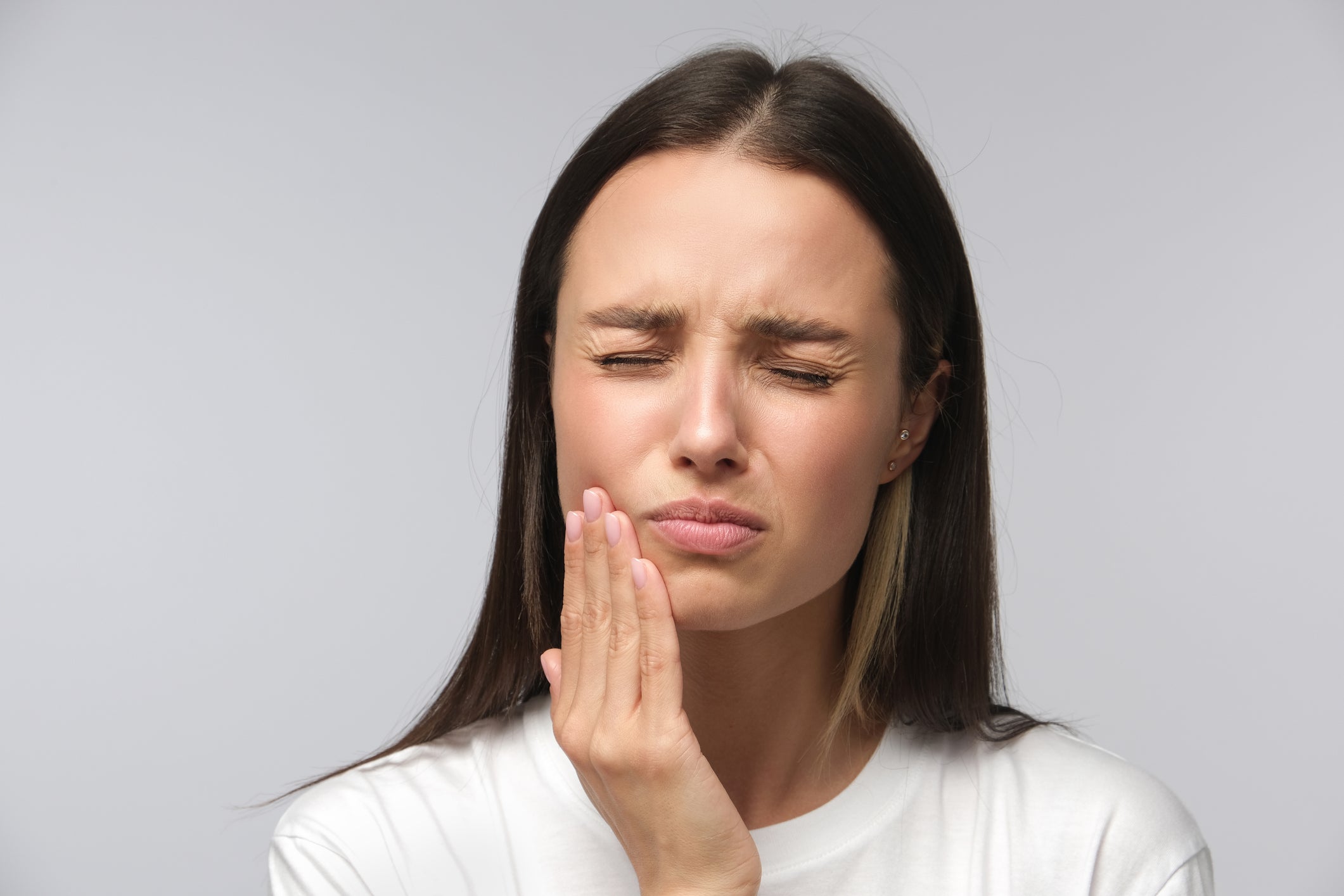
Your bite produces massive amounts of pressure, as much as 5,600 pounds per square inch. Teeth structure is amazingly resistant to this pressure and able to withstand a compressive force of approximately 30,000 pounds. But when you introduce foods and non-foods that are excessively hard, teeth can crack under the pressure. Tiny cracks in your teeth can put you at risk for deeper, more serious cracks and the introduction of dangerous bacteria into the tooth openings. Learn how to prevent cracks in your teeth so you can safeguard your smile for years to come!
Abstain from Foods that Could Injure Your Teeth
While teeth can withstand some tremendous forces, avoid adding extra stress by using them in proper ways. One of the most common ways teeth are damaged are from the foods and non-foods you eat or chew on. Common culprits for teeth cracks include:
- Ice
- Popcorn
- Frozen foods
- Hard candies
- Pens or pencils
If any of these foods or non-foods are a part of your daily routine, consider making some changes to protect your oral health.
Get Treatment for Teeth Grinding or Clenching
Twenty percent of Americans grind their teeth, a condition called bruxism, which is often accompanied by teeth clenching as well. Most people aren’t conscious of this stress-induced condition since it often occurs while they are sleeping. If teeth grinding isn’t treated it can lead to chips, breaks, and cracks in teeth overtime. A custom nightguard by your dentist can help treat the effects of teeth grinding.
Wear a Sports Mouthguard During Athletic Activities
Athletes are also at risk for teeth cracks from impact injuries during activities. The American Academy of Pediatric Dentistry reports that only 22 percent of children wear mouthguards while playing sports. A sports mouthguard can protect teeth from this dangerous source of oral trauma.
Park 56 Dental offers restorative dentistry to repair and prevent cracks in your teeth so cracks don’t jeopardize the health of a tooth or adjacent teeth. Contact us today at (646) 679-3989 if you have any questions about the stability of your teeth. Your health and well-being are our top priority
RECENT POSTS
categories
- Uncategorized
- Cosmetic Dentistry
- Veneers
- Healthier Teeth
- Teeth Whitening
- Dental Health
- Video
- Dental Emergencies
- Invisalign
- Dental Implants
- Root Canal
- Sedation Dentistry
- Infographic
- Dental Crowns and Bridges
- Dental Anxiety
- Gum Disease
- COVID-19
- Bad Breath
- New York Dentist
- Cut out sugar
- General Dentistry
- Oral Health
- Oral Cancer
- Dry Mouth
- Gum Health
- Toothache
- Dental Sealants
- Cavities



